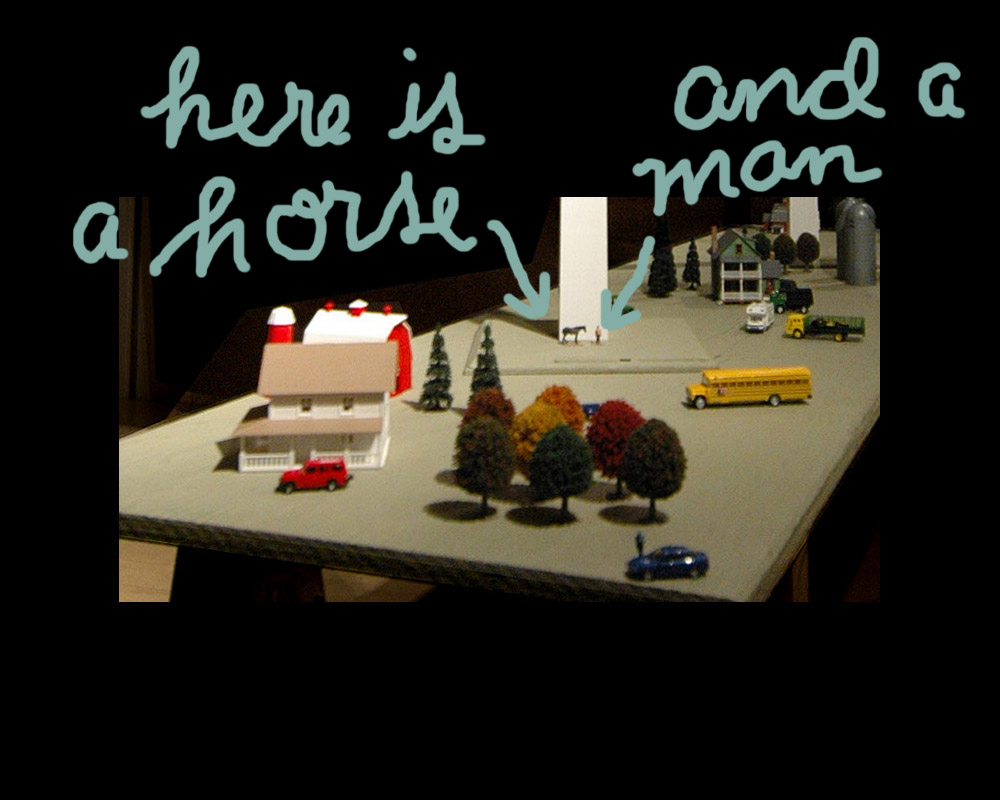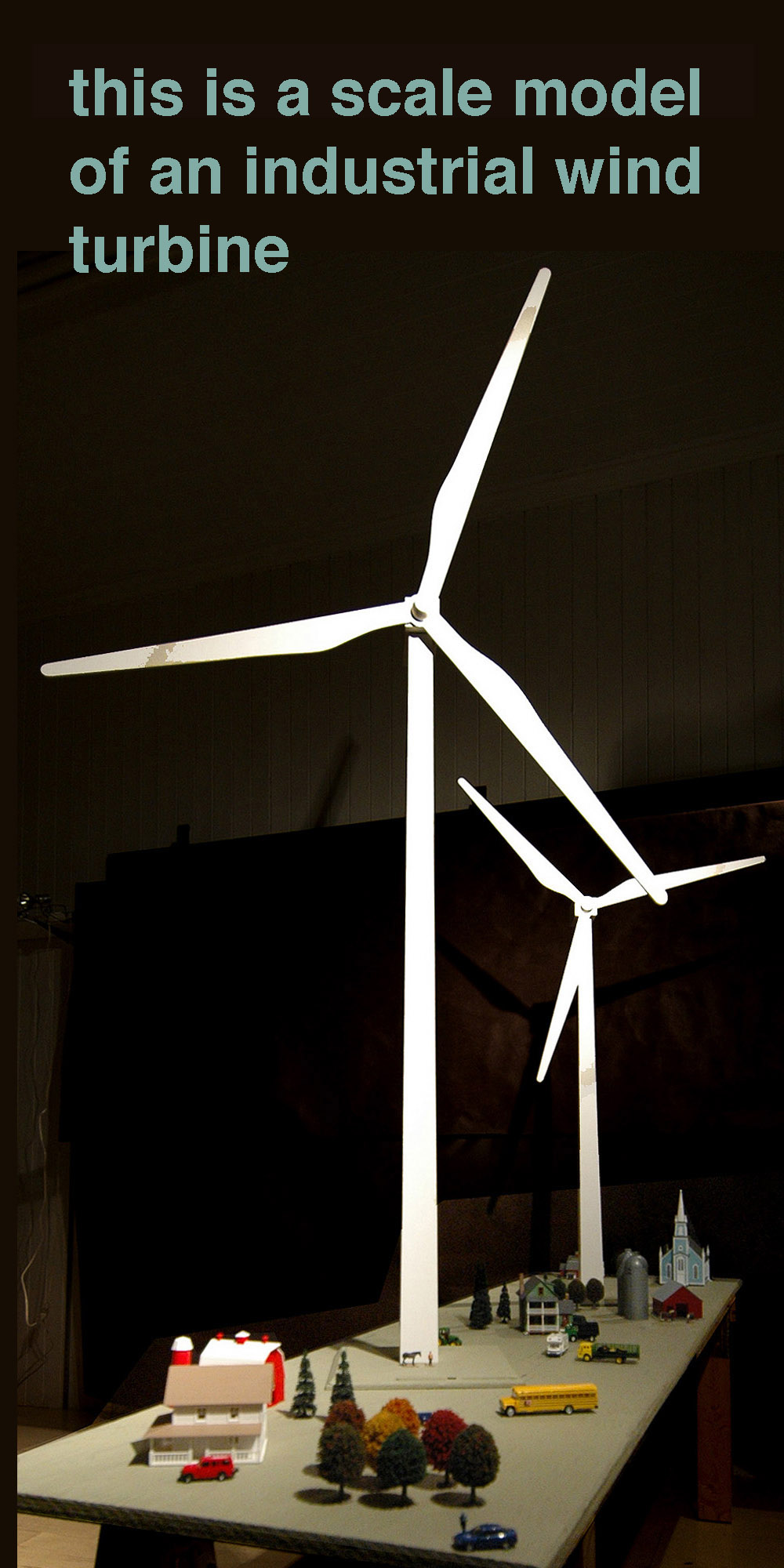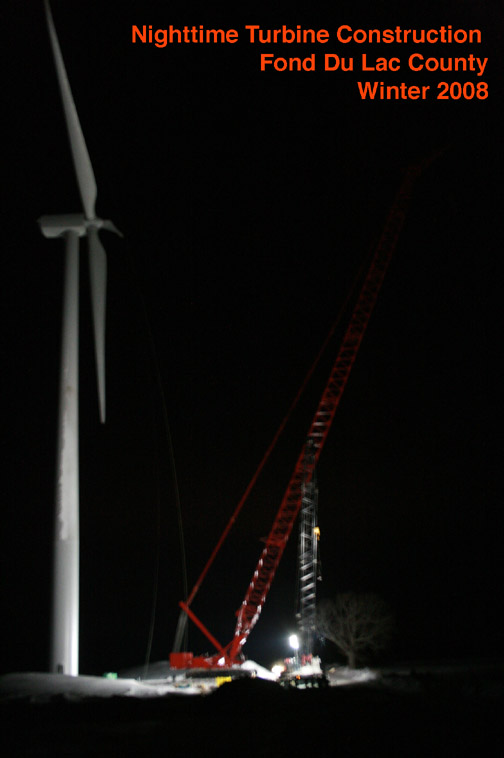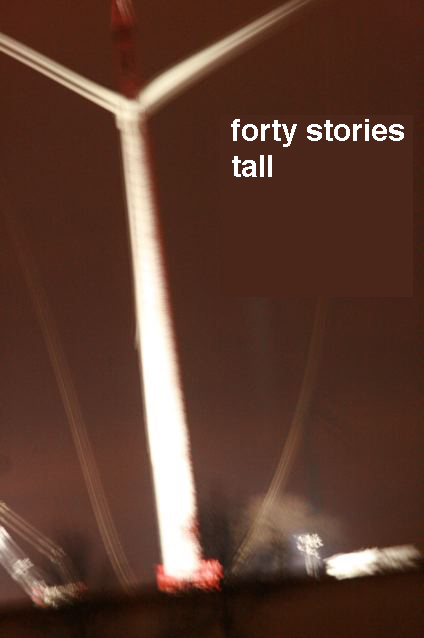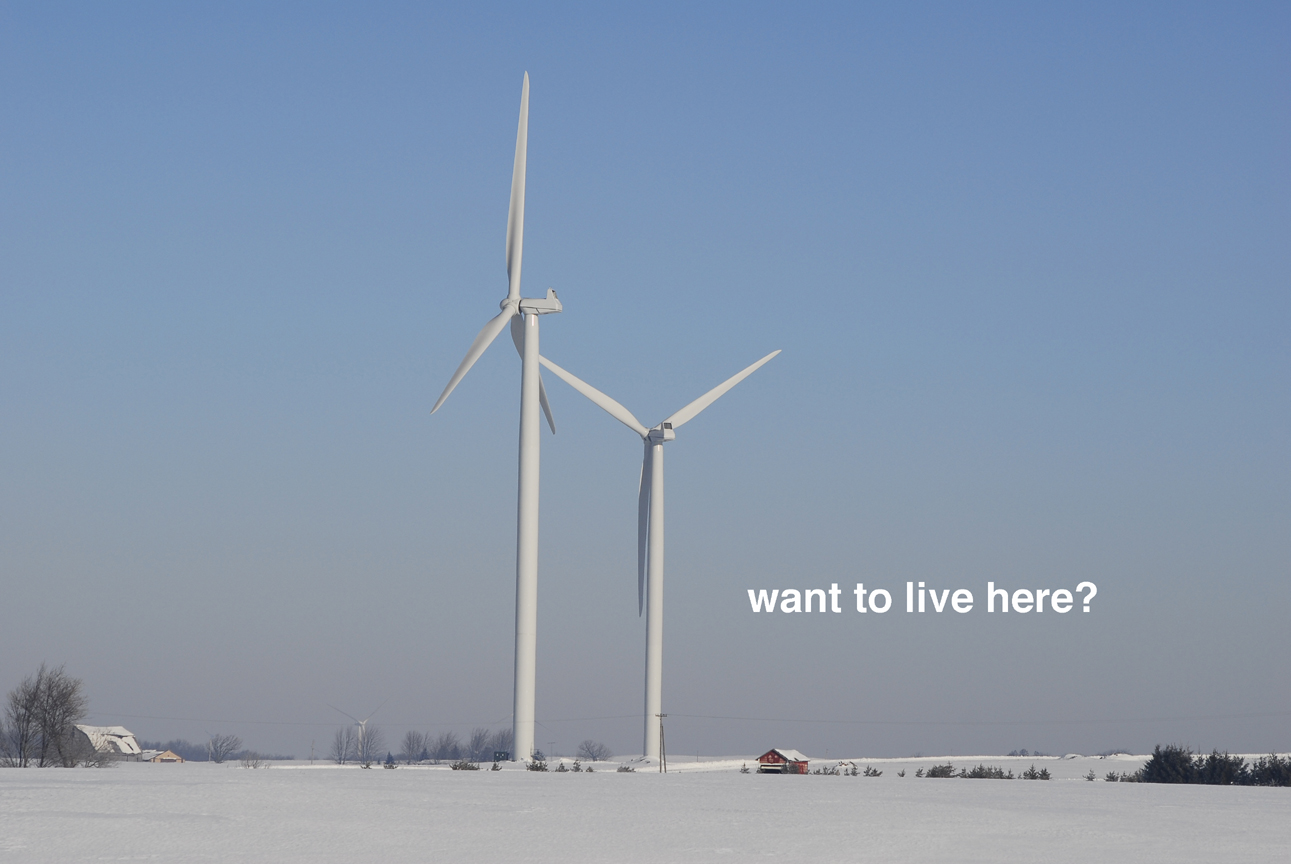9/15/08 Life with Industrial Wind Turbines in Wisconsin Part 8 and also the scale of the turbines
Today's featured interview is with one of the town supervisors in Calumet County's town of Lincoln where there was so much trouble with the noise from wind turbines that the utility which owned the turbines bought two homes and demolished them. People who lived in two other homes sued the utility and won an undisclosed out-of-court settlement. Until wind developers and the state of Wisconsin take people's lives into account when they site 40 story turbines 1000 feet from people's homes, this story is bound to be repeated as it is being repeated right now in Dodge and Fond du Lac Counties.. For those whose internet connection isn't fast enough to view this video, a transcript is provided below.
Life with Industrial Wind Turbines in Wisconsin
Part 8
Arlin Montfils
Township Supervisor,
Town of Lincoln, WI
April 2008
Arlin Montfils: We knew nothing, really, about them. The company said, well -- they imposed an 800 foot set-back from the nearest resident.
Q: Not from their property line, but from their home.
The nearest resident. I believe that's what it was. I haven't looked back for sometime, but in my opinion that was way too close, we had people that complained: noise, noise, and noise.
And it wasn't at high wind speeds. It was at low wind speeds like lets say ten to fifteen miles an hour, something like that, that's where the most noise was coming in.
The decibel level [limit] was 50 decibels, we knew nothing about it. In my opinion it should have been 45. They threw out that number and they said you and I talking is 50 decibels and that's probably true. I don't dispute that. And they probably haven't exceeded this 50 decibel level, but it's constant it can go on for-- well, you know the wind-- it can go on for 24 hours or more and that's when you start getting complaints because it never goes away and that's when it gets irritating.
With this noise complaint, they set up a toll-free number you could call that day or night, twenty-four hours a day and file a complaint. Stating that there's noise and it sounded like this or it sounded like that
and what time of the day and approximate wind speeds, and that went on for about a year, I would say, that they had this toll free number up. Then at the end of the year what they did was contact these residential home-owners and offer to buy their property. Offer to buy their homes.
Q: They did offer to buy them?
Oh yeah. They bought two homes. There were five basic complaints all the time. So they bought two of the homes, tore them down. One party got a divorce so another person lived there, didn't bother her, what ever. The two other places, they brought a lawsuit against WPS, they settled, I think they settled out of court, because if they had settled in court it would have been public record and we were not able to find out what they settled for.
Q: Are they still living there?
They are still living there. Yes.
Q: Now you mentioned, the public utility-- two of [the houses] they bought and they tore them down. Why do you think they tore them down rather than try to resell them?
If they sold them they might have sold them to someone who would still complain. And they didn't want complaints, I guess. One of those situations where the person got a divorce, and he came out on top by selling it to them, and the other party just sold the house.
Q: Being a public official you hear a lot of things. Do you feel that the complaints from the property owners were valid?
Oh yeah. Sure.
Q: They were valid.
Yeah. They'll say you only got one home complaining or two well the turbines are right here, there are eight of them, there's only two homes close by. So you had two complaints. So they say "You only had two complaints" but if there was more homes-- if there was then homes, you'd have ten complaints.
Q Do you expect to have anymore development for wind turbines in this area?
No. They companies that put them -- the utilities-- won put them up anymore. But if they were to do it, they would have private companies do it and then buy the electricity back from them.
Q: Why do you think they are getting away from the development themselves and having a company do it--
They want to be good neighbors, so if they don't do anything about a complaint they are not good neighbors. So if they deal with a private company, the private company would have to deal with all the complaints or issues or what have you, they would have no problem. That's what they told us. It's a lot easier to have a private company put them up rather than themselves.
Q: Getting back to the economic side of this did this development, other than bringing revenue in to the local township and county and the landowners, did it bring any jobs here?
When they were first building, a private contractor dug the base and I'm sure they got the concrete for the bases from a local supplier.
Q: Other than construction were there any jobs created?
No. No. They do have-- they found their own personnel for maintenance, you know. And if there is a problem with that they come in with their own companies or who ever they have
Q: Specialized?
Basically, they come in with a high crane you know. And we don't have that. Nobody around here has that. So they have to come in with it. Private company from someplace. I don't know where.
Q: Have there been any maintenance issues with the turbines?
I believe there is. We get a report every year as to what was replaced. Basically it's the generators and the oil sometimes a bearing goes out, they have to replace that. It's all them. We have nothing to do with that, you know.
Q: Can you tell us a little bit about the benefits to the community or pros and cons that you can see on both sides of this for your community?
Financially it's the biggest benefit there was for the township.
Q: For the township?
Yes.
Q: Was it a needed revenue stream?
No. We could have done without it.
Q: But it was nice having extra--
Oh, absolutely
Q: It's always nice to have extra money
Right. Yeah.
Q: So the money, the financial aspect of it is a benefit. What about cons? Is there any negative impact?
We had a person that complained a lot about stray voltage. The party himself spent a lot of money trying to control the stray voltage on his place.
Q: Did he have livestock?
Oh yeah. He's a dairy farmer.
Q: Big dairy farmer?
Oh yeah. A hundred and fifty cows he might milk plus other animals, you know. He spent a lot of money, you know. He couldn't alleviate it, but could control it.
Q: Did the development company, did the public utility do anything to assist him with that?
No. We did have the Public Service Commission of Wisconsin come in and do testing, and their tests came back saying the towers are within guidelines--I don't know what the guidelines are--- that they did not exceed the guide lines toward stray voltage. [The farmer's] concern was they did.
Q. Have you heard of any health concerns people had because they are living next to them.
Well this party that put their home up for sale --they thought there kid was getting too many headaches.
So they did have Madison Gas and Electric, the owners of those utilities, they did come in and do a study, and what ever their findings were, they said they did not exceed guidelines for homes, for residential homes for as far as stray voltage went. That's as far as it went.
Q: My other question here is information made available on the internet. There's a lot of information
about Lincoln township that's available on the internet now for people to view and consider. What are your thoughts about that information, is it factual information? An accurate representation of what's taken place here?
I have not seen it. I don't have internet access right here, you know. But I know about it. Basically what I'm telling you now, if you want to compare what I've said to you to what's on the internet? Work from there. I think it's pretty factual, I think they exaggerated on some things, I don't know which ones it would have been, but, yeah. It's reasonably accurate I think.
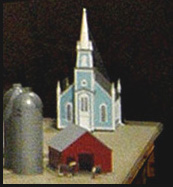
NOTE FROM THE BPRC RESEARCH NERD: Below is a link to a short film which shows the scale of an industrial wind turbine compared to things we ordinarily see in our lives. It also includes images of an actual turbine being built at night in Fond du Lac county in the winter of 2007-2008. For those whose internet connection isn't fast enough to watch it on line, still pictures from the video are provided below.


